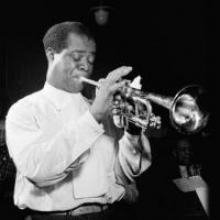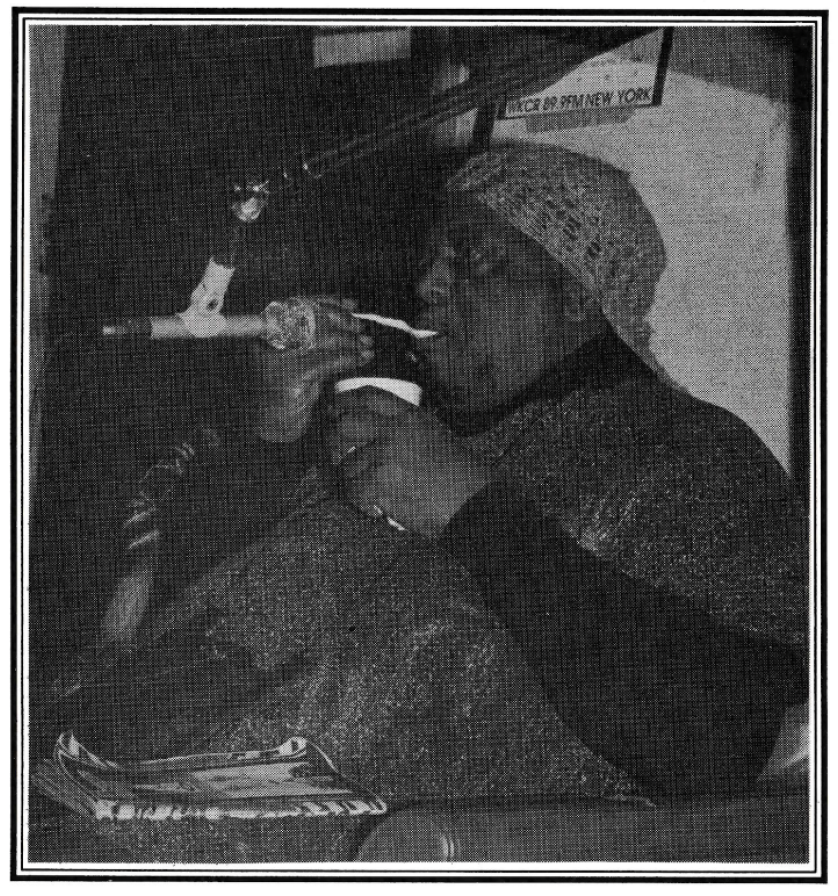
Tune in all day this Wednesday, July 4th as we celebrate the chosen birthday of one of the foundational figures of jazz, trumpeter and vocalist Louis Armstrong. We will be preempting all regular programming as we honor Pops with 24 hours of swing. In his autobiography, Swing That Music, Louis Armstrong titled the first chapter “Jazz and I Get Born Together.” Dating his birthday July 4, 1900, Armstrong created a mythology that linked his own birth to the birth of Jazz and the birth of America. While he may have fibbed about the exact date, he was not wrong to connect his life with the beginnings of this American art form. He grew up surrounded with a vibrant musical culture, informed by the rags of Scott Joplin and the funeral marches that comprised the New Orleans music scene. Louis took up the trumpet and by 1922 was a featured soloist with King Oliver's Creole Jazz Band, serving as a melodic foil to the pyrotechnics of a young King Oliver. By 1924 he had quit Oliver's group, and moved to New York City to play with the Fletcher Henderson Orchestra (which then also featured a young Coleman Hawkins). In 1927, Louis created some of his most famous recordings with the Hot Fives and Hot Sevens, which featured luminaries such as Kid Ory, Lil' Hardin, Earl Hines, Johnny Dodds, Johnny St. Cyr. In 1929, Armstrong was featured as a soloist in Fats Waller's pit orchestra for the production Hot Chocolates, and received acclaim for his work on the tune "Ain't Misbehavin'". Louis would later form a prolific big band, led by Luis Russell and Carol Dickerson at points, that would go on a whirlwind tour of Europe and return to the states in 1935. In 1947, Louis' manager, Joe Glaser, fired the group and formed a new smaller group titled Louis Armstrong's All Stars, which featured personnages such as Jack Teagarden, Earl Hines, Barney Bigard, Sid Catlett, and Trummy Young. For the remainder of his life, Louis would have a string of hits with this group, and would go on to record definitive versions of tunes such as "Hello, Dolly" and "What A Wonderful World". His expression on the cornet and trumpet was complimented and contrasted by his singular vocal style. Throughout his life, Armstrong became the definitive model for individualism in jazz. He was lauded in his own time, and his recordings have been cherished by generations. Celebrate Independence Day with Pops!
